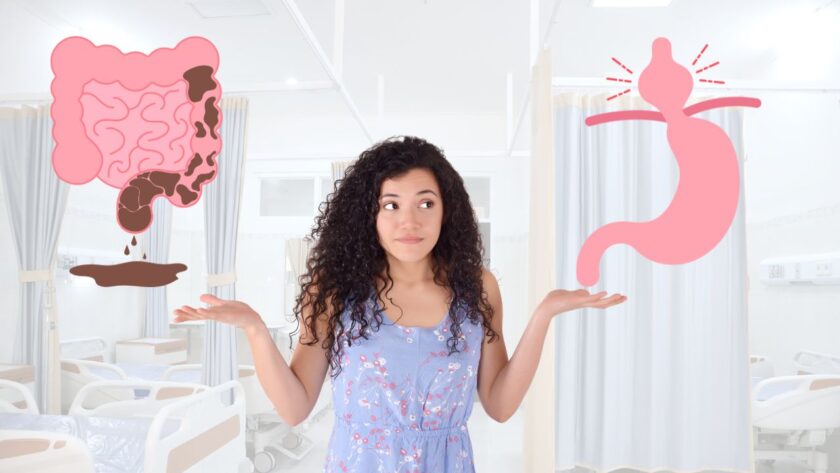Hemorrhoids and hernias are two common conditions that can cause discomfort and pain in the lower abdominal region. While they are different conditions, they share some similarities in terms of symptoms and causes.
In this article, we will explore Hemorrhoids vs hernia, and provide information on how to diagnose and treat these conditions.
What are hemorrhoids? Hemorrhoids are swollen veins in the rectum and anus. They can be internal or external, and they are usually caused by pressure in the lower rectum or anus.
This pressure can be caused by constipation, diarrhea, pregnancy, obesity, or sitting for long periods of time. Symptoms of hemorrhoids include itching, pain, and bleeding during bowel movements.
What are hernias? Hernias occur when an organ or tissue protrudes through a weak spot in the surrounding muscle or connective tissue.
They can occur in various parts of the body, including the abdomen, groin, and upper thigh. Hernias are typically caused by heavy lifting, straining during bowel movements, pregnancy, or obesity. Symptoms of hernias include pain, discomfort, and a bulge in the affected area.

Differences between hemorrhoids and hernias
Hemorrhoids and hernias are two different conditions, but they can be difficult to distinguish from one another because they share some common symptoms. However, there are some key differences between the two conditions.
Location: Hemorrhoids occur in the rectum and anus, while hernias can occur in various parts of the body, including the abdomen, groin, and upper thigh.
Appearance: Hemorrhoids usually appear as small, swollen veins in the anus or rectum, while hernias appear as a bulge or lump in the affected area.
Pain: Hemorrhoids can cause pain, itching, and discomfort, while hernias can cause pain and discomfort, but not usually itching.
Bleeding: Hemorrhoids can cause bleeding during bowel movements, while hernias typically do not cause bleeding.
Causes: Hemorrhoids are caused by pressure in the rectum or anus, while hernias are caused by a weakness in the surrounding muscle or connective tissue.
Diagnosis and treatment of hemorrhoids: If you suspect that you have hemorrhoids, you should see a healthcare provider for a proper diagnosis. Your healthcare provider will likely perform a physical exam and may recommend a colonoscopy to rule out other conditions.
Treatment options for hemorrhoids include:
- Over-the-counter creams and ointments: These can help to reduce itching and inflammation.
- Sitz baths: Soaking in warm water can help to reduce swelling and provide relief.
- Hemorrhoidectomy: In severe cases, surgery may be necessary to remove the hemorrhoids.
- Lifestyle changes: Making changes to your diet and exercise routine can help to prevent hemorrhoids from recurring. This may include eating more fiber, drinking more water, and avoiding sitting for long periods of time.
Diagnosis and treatment of hernias If you suspect that you have a hernia, you should see a healthcare provider for a proper diagnosis. Your healthcare provider will likely perform a physical exam and may recommend imaging tests, such as an ultrasound or CT scan. Treatment options for hernias include:
- Watchful waiting: In some cases, your healthcare provider may recommend a wait-and-see approach to monitor the hernia and see if it gets worse.
- Hernia truss: This is a supportive device that can help to reduce discomfort and prevent the hernia from getting worse.
- Surgery: In most cases, surgery is necessary to repair the hernia. This may involve placing a mesh patch over the weak spot in the muscle or connective tissue.
- Lifestyle changes: Making changes to your diet and exercise routine can help to prevent hernias from recurring. This may include avoiding heavy lifting, maintaining a healthy weight, and avoiding straining during bowel movements.
Hemorrhoids vs hernia: Which is worse?
It’s difficult to say which condition is worse, as both hemorrhoids and hernias can cause discomfort and pain. However, untreated hernias can lead to serious complications, such as obstruction of the intestines or loss of blood supply to the affected area.
In some cases, these complications can be life-threatening. Hemorrhoids, on the other hand, typically do not lead to serious complications.
Preventing hemorrhoids and hernias There are several things you can do to prevent hemorrhoids and hernias from occurring:
- Maintain a healthy weight: Being overweight or obese can increase your risk of both hemorrhoids and hernias.
- Eat a high-fiber diet: Eating a diet rich in fiber can help to prevent constipation, which is a common cause of hemorrhoids.
- Stay hydrated: Drinking plenty of water can help to keep your stools soft and prevent constipation.
- Avoid heavy lifting: Lifting heavy objects can increase your risk of hernias.
- Exercise regularly: Regular exercise can help to prevent both hemorrhoids and hernias by improving muscle tone and reducing the risk of constipation.
Conclusion
Hemorrhoids vs hernia, two common conditions that can cause discomfort and pain in the lower abdominal region.
While they share some similarities in terms of symptoms and causes, there are some key differences between the two conditions.
If you suspect that you have either condition, it’s important to see a healthcare provider for a proper diagnosis and treatment plan. By making lifestyle changes and taking steps to prevent these conditions from occurring, you can improve your overall health and wellbeing.






